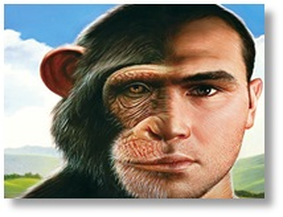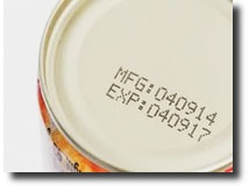Statements and phrases often have more than one meaning. Such is the case with our “Question of the Month”. I could be asking if 50% of our physical makeup consists of bananas. Most likely, however, if someone heard this question, they would be thinking of whether or not we’re all “half crazy”. Right now, given the coronavirus pandemic (COVID-19, spring 2020 for those of you reading this in the distant future), we all probably really are “half crazy”. I will resist discussing that possibility and restrict my commentary to the former take… whether or not 50% of our physical makeup consists of bananas. Why would I ask that? Some of you already know. Many have no idea where I am going with this and wonder why in the world would anyone even think to ask such a question.
I received an email from a woman who attended a conference in which I was one of the speakers. She conveyed the following story. She was helping out with a children’s Bible Club and had given an 11-year-old girl a yogurt for a snack. Later, when the young girl was asked what she learned in Bible Club, she stated she learned that “half of our DNA is the same as banana DNA!” She didn’t learn that from what was taught in Bible Club, but from the yogurt’s packaging. The club leader wasn’t sure how to respond and probably didn’t want the young girl to go home and give her parents the impression the Bible club was filling her mind with very strange and bizarre ideas!
In keeping with our ministry’s mission statement, “to help Christians better understand and better defend the Christian worldview,” a lot of what we deal with is related to attacks on the inspiration, authority and trustworthiness of the Bible. One of the most formidable assaults is regarding the Genesis creation account. In a very straight-forward fashion, Genesis 1-2 describes the creation of everything supernaturally, including human beings. Specifically, Scripture states, “And the Lord God formed man of the dust of the ground, and breathed into his nostrils the breath of life; and man became a living soul… And the rib, which the Lord God had taken from man, made he a woman, and brought her unto the man.” (Genesis 2:7,22) I’m sure you remember hearing all about that in high school or at the state university. No? Obviously not!
Many atheists today say their “conversion” from religion (or even specifically, Christianity) to atheism was triggered and propelled by learning that evolution was a scientific fact. No longer giving credence to the biblical account of creation, they lost faith in most, and then all, of what the Bible teaches. One of the strongest evidences used in support of human evolution is the alleged DNA similarity between humans and chimpanzees. It is common to see claims ranging from 96-99% similarity. On the surface, this would appear to be greatly supportive of the belief that we evolved from ape-like creatures. Upon closer inspection, we see two major issues with this. (1) Even if we were 98% similar, the 2% difference still amounts to 60 million differences, given the fact that human DNA contains roughly 3 billion “letters”. I’ve dealt with this issue in other resources (my book, articles, videos, etc.). The main challenge is that mutations cannot account for the creation of this much new, positive, interrelated, accumulative information, not even in the alleged 6 million years during which evolutionists believe this occurred. (2) The percentages they promote aren’t even correct! Not even close! We now have a much better understanding of chimp DNA and the actual percentage similarity is down in the 80s, maybe even as low as 70%! That makes things much, much worse for evolution on a number of levels.
So, what does any of this have to do with bananas? Fairly often, when speaking of DNA, similarities and addressing the idea of evolution, it is also claimed that we share half of our DNA with bananas! The point intended by some who push back against evolution is that just because there’s a fairly high correlation of DNA similarity between humans and chimps, it doesn’t make us partially apes, anymore than being 50% similar to bananas makes us “half bananas!”
So, do we really share half our DNA with bananas? Here’s the scoop.
We don’t actually share 50% of our DNA with bananas, but we do share somewhere around 50% of our “genes”. What’s the difference? DNA refers to the entire DNA strand, whereas “genes” refer to specific portions of the DNA that are directly involved in making proteins. (Proteins are the products DNA makes that carry out most of the functions in our bodies, like digesting food, healing wounds, etc.)
Only about 2% of our DNA directly makes genes. The rest is mainly very complex instructions telling the 2% what to do!
So… if we say 2% of our DNA is made up of “genes” and we share 50% of that with bananas, that means we share only 1% (half of 2%) of our entire DNA with bananas.
Keep in mind that most living things (all of which have DNA) need to do the same types of basic “housekeeping” functions on a regular basis, such as copying their DNA, repairing their cells, and helping their cells divide. Therefore, the genes that control those functions will all be very similar if not identical.
We tend to think of human or animal DNA as just being used to give them their outer appearance, but a much larger portion is involved in performing basic internal functions needed by all living things, independent of what they look like on the outside. The important lesson to learn is that numbers (especially if incorrect) can be used to support just about any idea, if you only tell part of the story, or use the figures disingenuously or from a standpoint of ignorance.
So, no, you’re not half-crazy (well, probably not) and definitely not half bananas!









